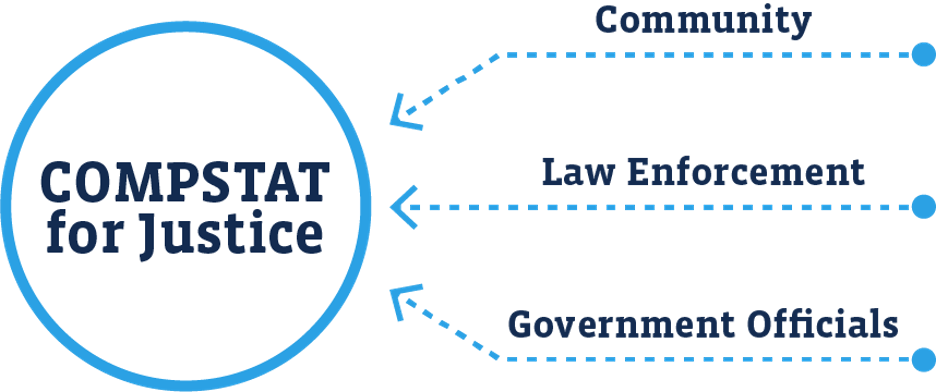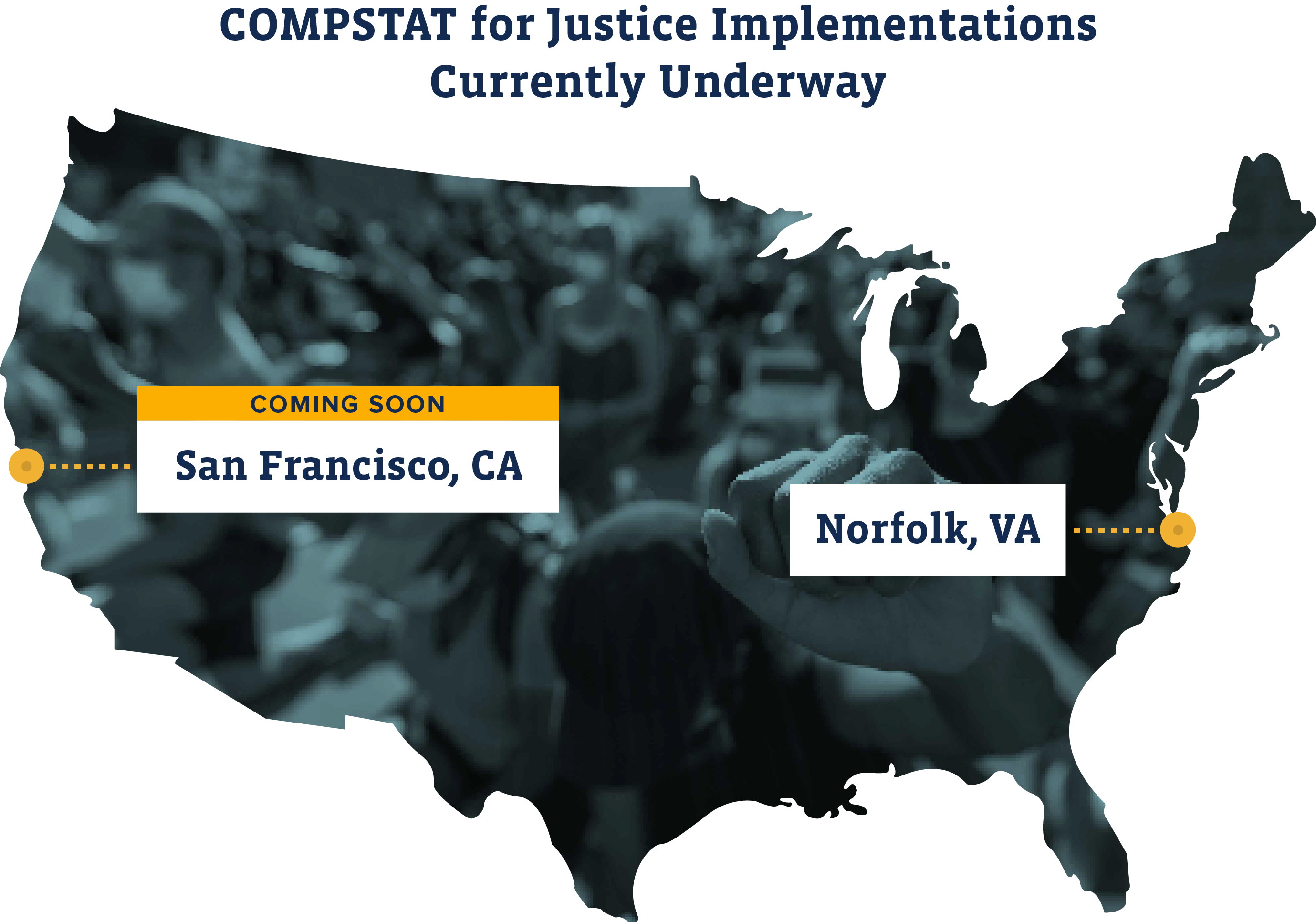What is C4J?
C4J is a program of the Center for Policing Equity (CPE), a research and action organization that uses data science to identify and help reduce the causes of racial disparities in police interactions and advocate for meaningful change in public safety.
Our work builds on the foundational understanding that racism is not simply an expression of defective hearts and minds but is best understood as behavior that can be observed, measured, and monitored, and is often a direct result of systems that drive such behavior.
Behavioral science research has demonstrated unequivocally that the systems and situations in which people spend their time are far better predictors of behavior than the attitudes those individuals hold. Bad actors must be held accountable for racist actions, but individual remedies can't effectively address the broader circumstances that shape, encourage, and condone racist behavior. The most effective approach to remedying racial disparities is to identify and eliminate the systems and situations that drive the behavior. These facts are the foundation on which COMPSTAT for Justice (C4J) builds.

C4J is a data-driven intervention process designed to help communities, government officials, and police departments co-create public safety systems that are healthier, safer, and more just, from the ground up. The C4J team works with police departments that express the desire to reduce racial disparities in their work, are willing to engage with the community in these efforts, and commit to public transparency throughout the process. Through smart data collection, rigorous analysis, and ongoing engagement with all stakeholders, C4J facilitates a community-centered process to identify drivers and risks for policing inequities and reimagine the delivery of public safety services.
Information gathered through C4J is used by our data scientists, members of the community, and law enforcement to develop solutions, facilitate measurable changes in behavior, and create new policies. We collaborate with the community and law enforcement to leverage a range of data sources in order to help community members hold police accountable, not just for crime statistics but for policing outcomes.

How does it work?
Achieving C4J's goals requires the engagement and collaboration of various stakeholders, which may include: community advocacy groups and activists, local and state government officials, police department personnel, civilian oversight boards, mental health support providers, police unions, schools in which police serve as resource officers, and anyone else affected by public safety matters. The C4J process has three key constituencies: Community, Government Officials, and Law Enforcement. Like a stool with three legs. the process won't hold up without the involvement of all three.
- The C4J process begins with a Needs Assessment. Starting with a thorough review of policing practices, community data, police data, local history, current events, and input from community members about their lived experience, the C4J team develops a comprehensive plan and set of initial recommendations for addressing the root causes of policing inequities.
- The C4J team assists law enforcement in establishing an internal implementation team to lead departmental change, and, along with community partners, develop a strategic plan that implements Needs Assessment recommendations.
- The C4J team assists these partners in establishing permanent systems to measure and monitor the outcomes of their work and determine if any adjustments to the strategic plan are necessary, ensuring that reductions in inequitable outcomes and heavy-handed policing are lasting.
How long does C4J take?
C4J's objective is to help communities, government officials, and the law enforcement agencies serving them to work together in creating safer, healthier, and more just public safety systems. Building real trust and lasting change takes time. From initial engagement through project completion, we estimate that it will take approximately three to five years to complete the C4J process. Community experience is the ultimate barometer of success.
How can I learn more or become involved?
We're currently working in the cities noted on the map below; if you'd like to become involved in your city, or would like to learn more about the C4J program, please email us at .

